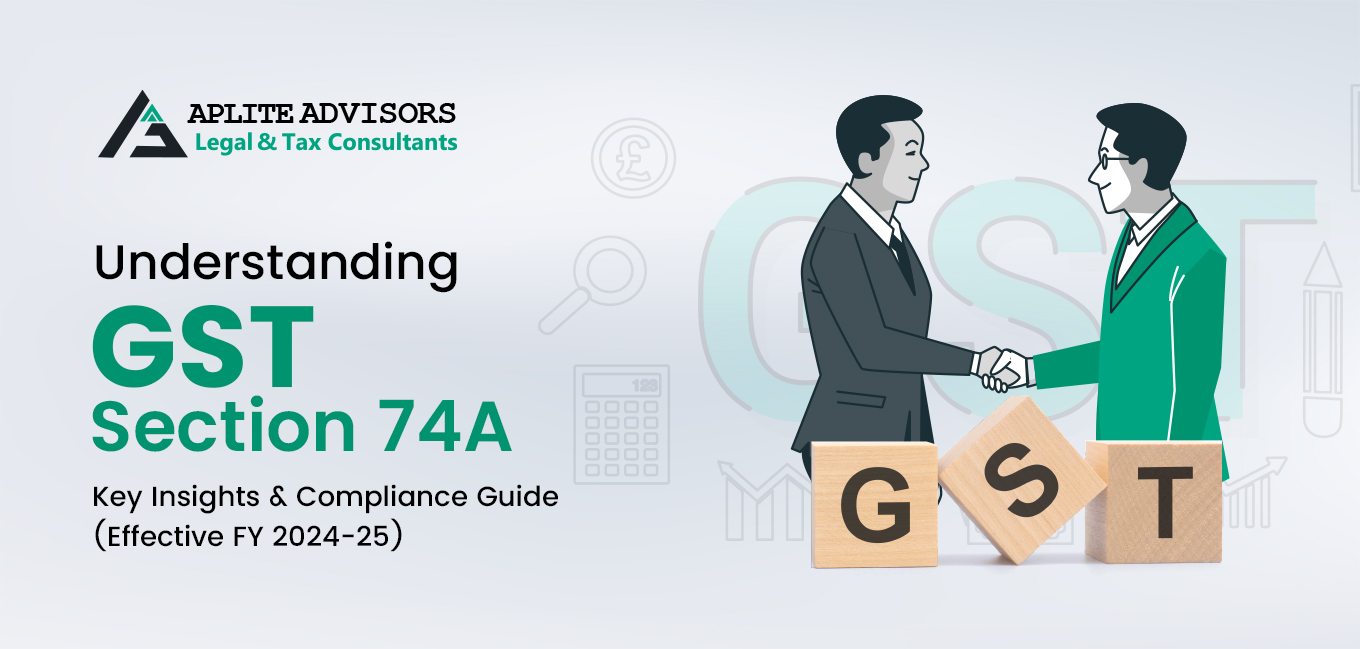Section 74A of the CGST Act, 2017, introduced for FY 2024-25, unifies the timelines and compliance framework previously governed by Sections 73 (non-fraud cases) and 74 (fraud cases). This reform simplifies GST demand and recovery processes, streamlining litigation and enforcement. Below is a concise breakdown of the key aspects and actionable steps for businesses.
1. Why Section 74A? The Shift from Sections 73 & 74
- Previous Framework:
- Section 73: Covered non-fraudulent defaults (e.g., errors, omissions) with a 3-year timeline for issuing orders.
- Section 74: Addressed fraud, suppression, or willful misstatement with a 5-year timeline.
- Section 74A Purpose:
- Merges both categories into a single framework, eliminating the need to differentiate between fraud and non-fraud cases.
- Aims to reduce ambiguity, accelerate enforcement, and standardize compliance timelines.
2. New Timelines Under Section 74A
- Show Cause Notice (SCN): Must be issued within 42 months (3.5 years) from the due date of GSTR-9 for the relevant financial year.
- Final Order: Must be passed within 12 months from the SCN issuance, extendable by 6 months in special cases.
- Applicability: Effective for FY 2024-25 onward (GSTR-9 due date: 31-Dec-2025).
Comparative Timeline Example (Key Years)
| Financial Year | GSTR-9 Due Date | GSTR-9 Due Date | Section 74A Order Deadline |
|---|---|---|---|
| 2024–25 | 31-Dec-25 | 30-Jun-29 | 30-Jun-30 (extendable to 31-Dec-30) |
| 2025–26 | 31-Dec-26 | 30-Jun-30 | 30-Jun-31 (extendable to 31-Dec-31) |
Note: For earlier years (e.g., 2017–18 to 2023–24), timelines under Sections 73 and 74 apply, as shown in the original table.
3. Implications for Businesses and Tax Professionals
- Unified Process: Simplifies compliance by eliminating fraud vs. non-fraud distinctions.
- Record Retention: Businesses must retain GST records for at least 4 years post-GSTR-9 filing to address potential SCNs.
- Compliance Alerts: Update systems to track the 42-month SCN and 12-month order timelines.
- Professional Oversight: Tax advisors should verify SCN validity under Section 74A and ensure clients are prepared for the new deadlines.
4. Action Plan for Section 74A Compliance
To align with Section 74A starting FY 2024-25, businesses should:
- Update Systems: Integrate Section 74A timelines into ERP systems and audit checklists.
- Train Teams: Educate finance and legal teams on the new timelines and procedures.
- Proactive SCN Validation: Review SCNs to ensure compliance with Section 74A timelines before responding.
- Robust Documentation: Maintain organized, accessible GST records to support audits or notices.
5. Conclusion
Section 74A is a transformative step toward simplifying GST compliance, offering clarity and faster dispute resolution. By adopting proactive strategies—such as updated systems, team training, and meticulous record-keeping—businesses can ensure compliance and leverage this reform for operational efficiency.
Need Assistance? For expert support with GST compliance, litigation, or audits, contact:
- Aplite Advisors
- Email: info@apliteadvisors.com
- Phone: +91-9015036021
- Website: www.apliteadvisors.com
“Timely compliance is your business’s best defense.”
If you have specific questions about Section 74A or need further clarification, feel free to ask!


